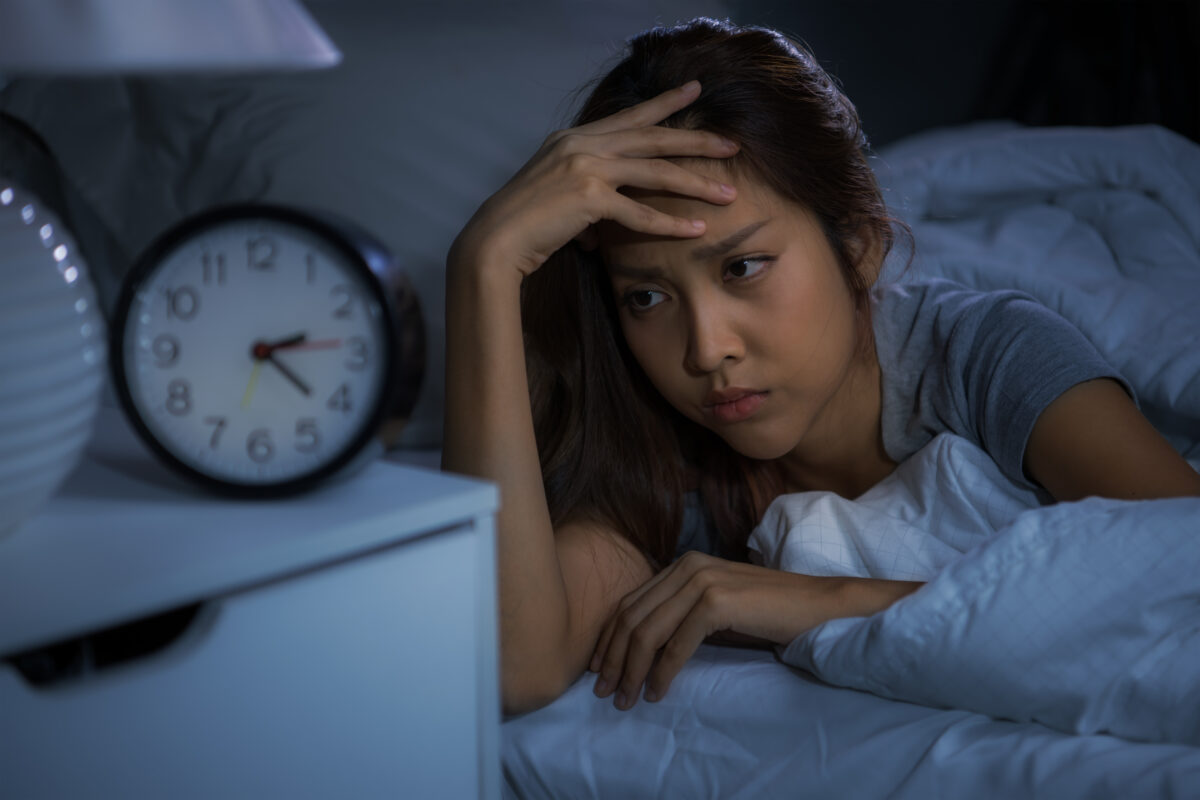A disruption in how you feel or function due to sleeping problems or not getting enough sleep is called insomnia. It is considered a health condition because it negatively affects roughly 10% of the world’s population. Mostly, it is not dangerous and several treatment options are available including therapies, medicines, and others.
What is Insomnia?
Insomnia occurs in case you do not get enough sleep. However, it also can happen due to falling or staying asleep problems. There are some people for whom insomnia is a minor issue while others experience major problems.
Additionally, sleep needs and habits are different among people. Check below for some examples of sleep characteristics:
- Early Risers – It means those people who prefer to go to bed and wake up early.
- Late Risers – In this category people naturally prefer to go to bed and wake up late.
- Short-sleepers – Due to some genetic reasons, these people need less sleep than others.
- Learned Sleep Differences – There are people who train sleep habits for different reasons for example their job (such as military personnel). However, others train heavy sleep in which they can sleep nonetheless surrounding noises.
- Natural Changes in Sleep Needs – The older a person becomes less sleep that individual needs. For example, an infant may sleep up to 16 hours daily while adults aged between 18 and up require 7 to 9 hours daily.
Insomnia Types
Check below two types of insomnia classified by experts:
- Time – Insomnia can be acute (short-term) and chronic (long-term). Experts usually say insomnia disorder for the chronic form of this condition.
- Cause – This disorder may occur on its own (primary insomnia) or it may be caused by symptoms of another condition (secondary insomnia).
It is considered a very common condition which affects one in three adults worldwide.
Symptoms
Insomnia symptoms are different and are also divided into categories. For example:
- Sleeping problems
- Daytime effects
- Chronic insomnia characteristics
Sleeping Problems
Check below three ways that an individual may experience sleeping problems:
- Initial (sleep onset) insomnia – In this case, a person experiences falling asleep problems.
- Middle (maintenance) insomnia – This is the most common form of insomnia. People who experience this category usually wake up in the middle of the night but fall asleep again.
- Late (early waking) insomnia – People who experience this category of insomnia commonly wake up early and cannot fall back asleep.
Daytime Effects
Insomnia may cause some unpleasant effects during the daytime. For example:
- Trouble concentrating or confusion
- Remembering problems
- Delayed responses
- Sleepiness and tiredness
- Mood swings (including depression, irritability, anxiety, and others)
- Certain disruptions in your routine and social activities, hobbies, work, and others
Chronic Insomnia Characteristics
Some insomnia symptoms characteristics are important. In case you have the following characteristics, it may mean that you have chronic insomnia. Examples include:
- Explanation – In case sleeping problems do not occur due to medical or nonmedical drugs or other sleep disorders.
- Duration – If you experience chronic insomnia, it will last roughly three months.
- Frequency – A person who experiences chronic insomnia, can experience insomnia frequently, about three times per week.
- Circumstances – It means that to diagnose insomnia is required to have sleeping disturbances nevertheless having time to do so.
Discuss with your healthcare provider for more details.
Causes
However, it is not known the exact cause of insomnia but at this time is believed that different factors provoke this unpleasant disorder. Some of the following factors can be the cause or just contribute to it happening. For example:
- Family history – Disorders such as insomnia seem to begin from family (genetic).
- Brain activity differences – Those who suffer from insomnia may have increased active brains or chemistry differences in the brain, which negatively affect the ability to sleep.
- Health conditions – There are different health conditions that can impact your ability to sleep. For example Parkinson’s disease, acid reflux, diseases that negatively affect your circadian rhythm, and others.
- Mental health issues – According to some research, roughly 50% of people with insomnia also experience at least one mental disorder (such as depression, anxiety, and others).
- Life changes or circumstances – Some stressful or difficult circumstances or adjusting to new work or hours can contribute to insomnia disorder.
- Habits and routine – Certain habits can also contribute to insomnia for example taking daily naps, consuming caffeine products in the evening, and others.
Risk Factors
People with the following characteristics are more likely to develop insomnia disorder. Examples include:
- Light sleepers
- Those who use alcoholic drinks
- People who do not feel safe in their homes
- Individuals who experience nightmare disorder or nocturnal panic attacks
Talk with your doctor for more details.
Complications
If you experience severe insomnia that lasts for a long time, it may lead to sleep deprivation. This is a serious complication that usually leads to sleepiness during the daytime. Therefore, it is dangerous, especially if you drive or do something that requires alertness. Moreover, sleep deprivation may elevate your risk for the following health conditions. Examples include:
- Anxiety
- Hypertension (high blood pressure)
- Heart attack
- Stroke
- Obstructive sleep apnea
- Obesity
- Type 2 diabetes mellitus
- Psychosis
- Depression
If you suspect you have sleep deprivation, contact your doctor right away.
Diagnosis
Healthcare providers usually diagnose insomnia disorder using different methods including questions about your medical history, personal circumstances, sleep habits, symptoms, and others. They may also perform some tests that will help to diagnose this health condition. Examples include:
- Multiple sleep latency test (MSLT)
- Actigraphy
- Polysomnography
Furthermore, your healthcare professional may order you to do other tests depending on your symptoms and other factors.
Treatment
Different treatment options are available for this disorder from simple changes in your lifestyle to several prescription and nonprescription medicines. Healthcare providers usually prescribe the following steps in the treatment of insomnia:
- Developing good sleep habits is also known as sleep hygiene
- Medicines that help you to fall or stay asleep
- Mental healthcare
Medicines
There are available different medicines for sleeping problems. However, many of them are sedative or hypnotic medicines.
- Sedative Drugs – These medicines work by decreasing nervous system activity.
- Hypnotic Drugs – Using these medicines, you may experience sleepiness.
Commonly, doctors are the best person that can help to diagnose and prescribe you the best treatment. However, you should know that the same medicines cannot help everyone and in some cases, it may take time to find out the medicine right for you. Moreover, the treatments listed in this article are not all possible treatment options. In addition, your physical and mental health, age, and habits also play an important role in the insomnia disorder treatment. Ask your healthcare provider if you have any questions.
Prescription Medicines for Insomnia
Check below some controlled medicines:
- Antiseizure Drugs – These medicines are usually used to treat certain health conditions that can contribute to insomnia (such as restless leg syndrome). For example, Gabapentin and Pregabalin are usually prescribed by physicians.
- Dual Orexin Receptor Agonists (DORAs) – Suvorexant, Lemborexant, and Daridorexant are often prescribed by doctors.
- “Z-Drugs” – The most common medicines include Zolpidem, Zaleplon, and Eszopiclone. These medicines work very similarly to benzodiazepines.
- Benzodiazepines – For example Estazolam, Quazepam, Temazepam, and Triazolam.
Uncontrolled Drug Types:
- Melatonin and Related Medicines – These medicines contain Melatonin, which is a chemical used by your brain to tell you that is time to go to sleep. In addition, the synthetic form of Melatonin is Ramelteon. It is not recommended to administer an increased dose without a physician’s recommendation because it may be harmful to you.
- Sedating Antidepressants – For example, Trazodone, Amitriptyline, and Doxepin.
Nonprescription Drugs for Insomnia
Medications used to treat allergies also may make you sleepy. For example Diphenhydramine and Doxylamine.
Herbs and Supplements
Different herbs and supplements are available for insomnia disorder. However, you should not use them without a doctor’s recommendation because some of them may interact with medicines or some existing health conditions.
Mental Healthcare
In most cases, treating existing mental disorders is the best way to improve your sleep. If you experience insomnia, it might be a complication of an existing mental disorder. Consult with your healthcare professional for more details.
Frequently Asked Questions
How long does insomnia last?
If you experience short-term insomnia it may last up to 3 months. However, if you suffer from chronic insomnia it can last more than 3 months. Talk with your physician for more details.
What are the main causes of insomnia?
Usually, the main causes of insomnia are stress, anxiety, and poor sleeping environment. Managing these causes usually improves your sleep.
What are the three types of insomnia?
- Sleep-onset insomnia
- Sleep-maintenance insomnia
- Mixed insomnia
Ask your healthcare professional if you have any additional questions.




